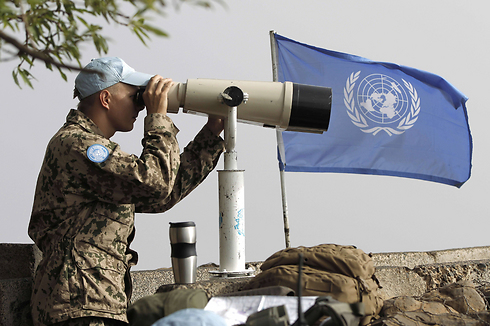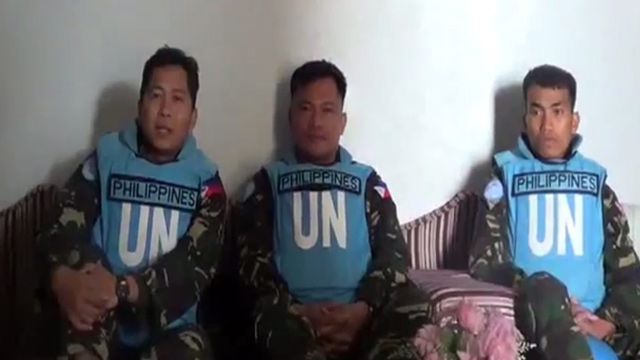
A year and a half after the hasty departure of UN troops from the Syrian Golan Heights, the UN force supervising the separation of forces is prepared to disperse its forces on the Syrian side of the border.
In recent weeks, officers and soldiers from the United Nations Disengagement Observer Force (UNDOF) made several visits to facilities and vantage points they manned from September 2014 in the Syrian Golan Heights.
The United Nations intends to return the observation force, which is composed of soldiers from five countries, to the sites it occupied from 1974 to 2014.
Israel's security establishment has a great interest in returning UNDOF personnel to the Syrian border, as part of efforts to create a haven from the chaos that reigns on he Syrian side.
Israel does not expect UN troops to actively intervene in the event that the fighting in Syria spreads in its direction, but the mere presence of the United Nations in the field creates, for Israel, certain international guarantees.
The working assumption is that if international forces are in place, the Security Council cannot ignore hostile activities against those forces and against Israel. In addition, since Syria's military withdrawal from the Golan Heights, Israel does not actually have a border with Syria, since that country has disintegrated. The return of UN forces sets up the prospect of new arrangements along the border in the Golan Heights.
It's worth noting that at their meeting last week, President Reuven Rivlin delivered a message to Russian President Vladimir Putin that Israel is interested in the return of UN inspectors to the northern border as part of a cease-fire in Syria. Rivlin asked for the support of Russia, and said that Putin demonstrated a positive attitude on the subject.
UNDOF’s departure from Syria began in the middle of 2013, when the Austrian government removed 380 soldiers (out of approximately 900 UNDOF soldiers) frm the Golan Heights out of fear for their lives.
In 2014, there were three incidents of kidnapping and assault of UNDOF troops in the Golan. In September of the same year, UNDOF withdrew all UNDOF forces from the Syrian Golan Heights into camps and outposts inside Israel. A few months later, UNDOF also cleared its main headquarters in Damascus.
Since then, UNDOF personnel have been on the Israeli side of the Golan Heights and report to the Security Council on the movements of IDF forces and Israeli planes along the border with Syria.
Thus, while UN troops reported violations of the separation agreements from the Israeli side, rebel forces took control of most of the area, and they are not committed to the agreements signed by Israel and Syria, including fundamentalist groups like Jabhat al-Nusra and ISIS.
Throughout the period, Israel has pressed the United Nations to deploy forces to the Syrian Golan Heights. In 2013, Russia was willing to send troops in order to replace the Austrian forces that left, but Israel and especially the UN Security Council did not like the idea of Russian troops entering Syria through the back door.
In February 2015, Israeli Ambassador to the UN Ron Proso met with the UNDOF commander, Colonel Purna Chandra Thapa, and requested a return to positions on the Syrian side instead of sitting on the fence on the Israeli side. The request was not granted. Now the UN's decision to renew its deployment in the Syrian Golan Heights joins the ceasefire arrangements announced in Syria, as part of the political processes that are crystallizing in Geneva.



















